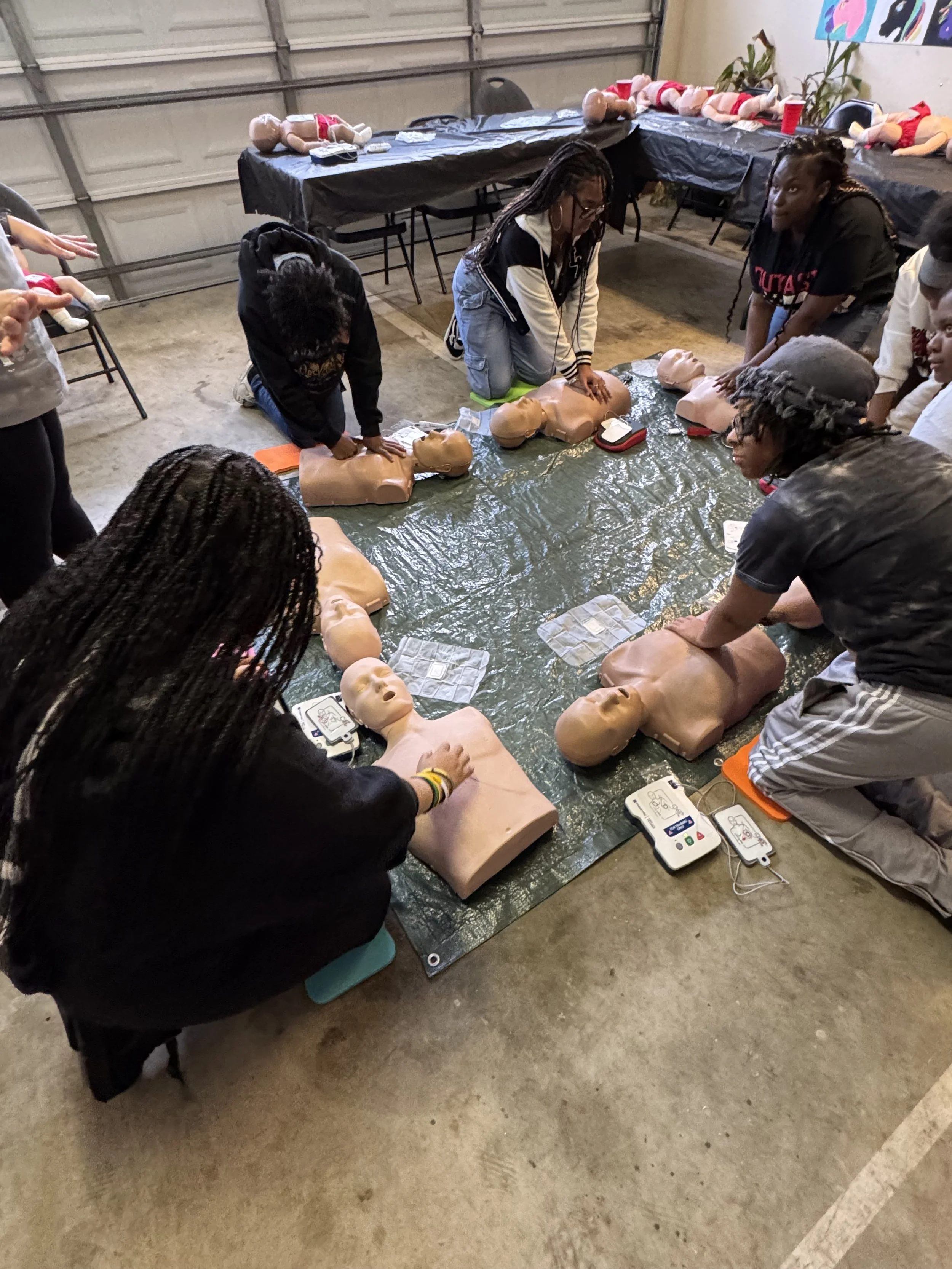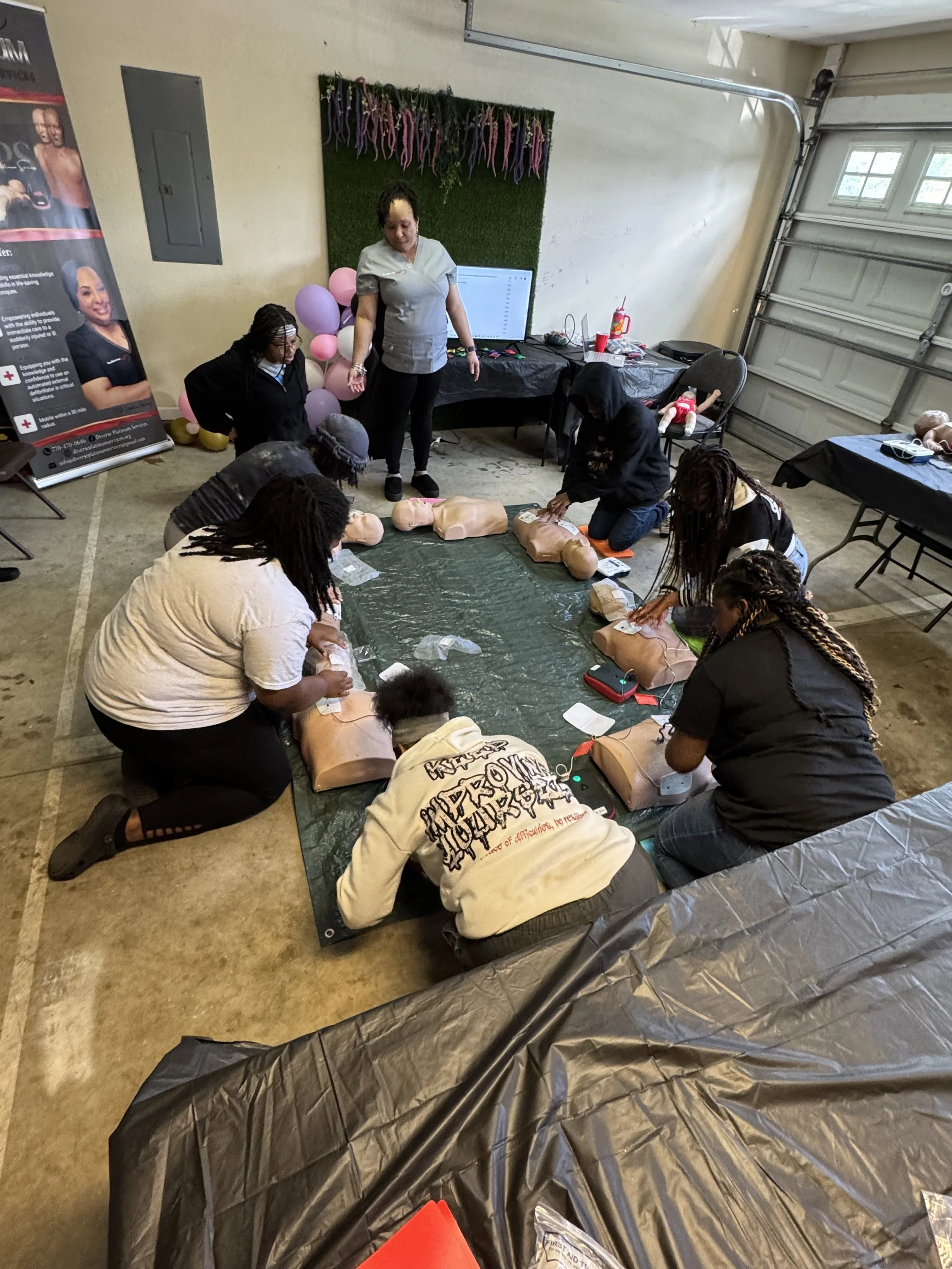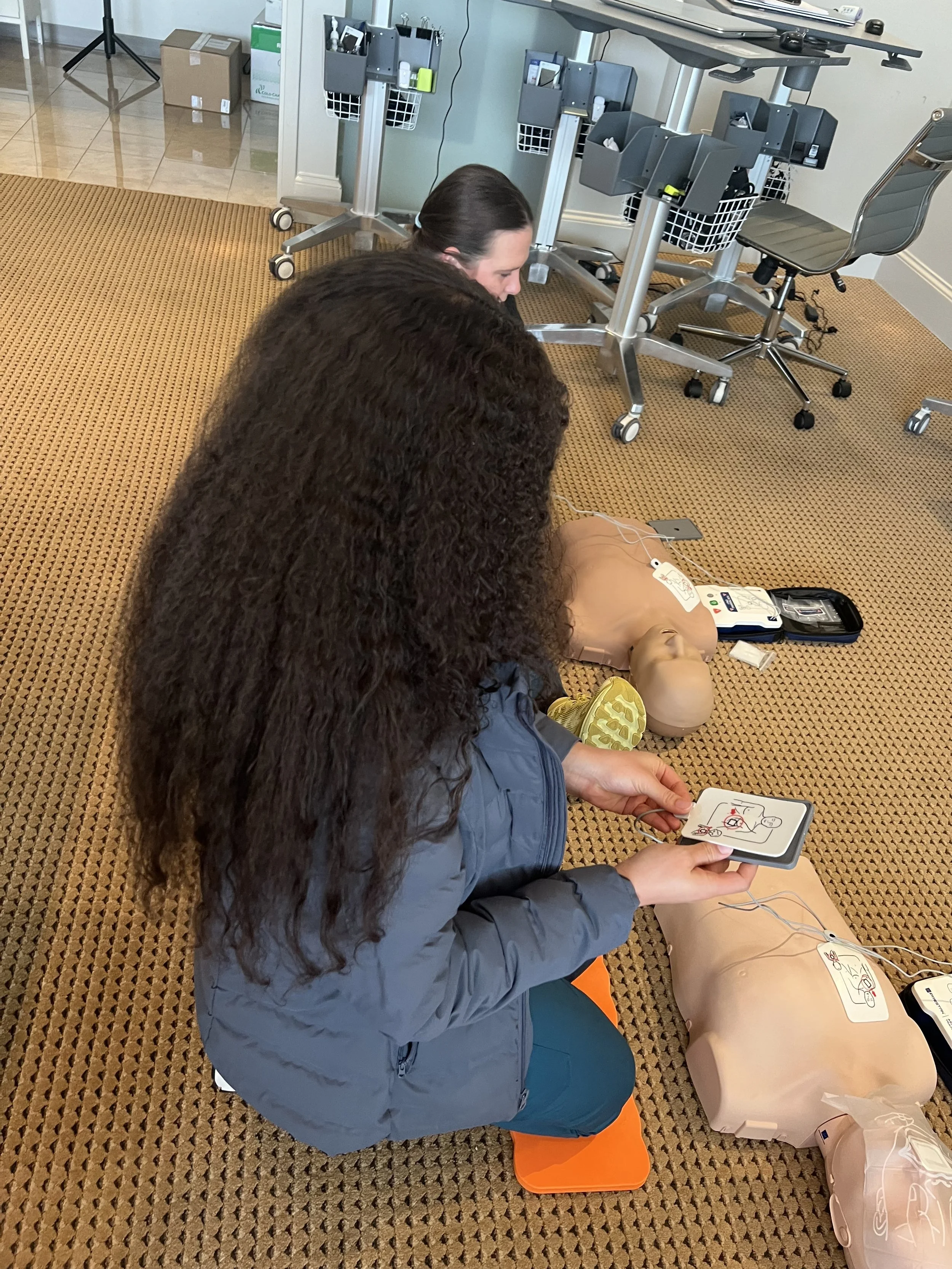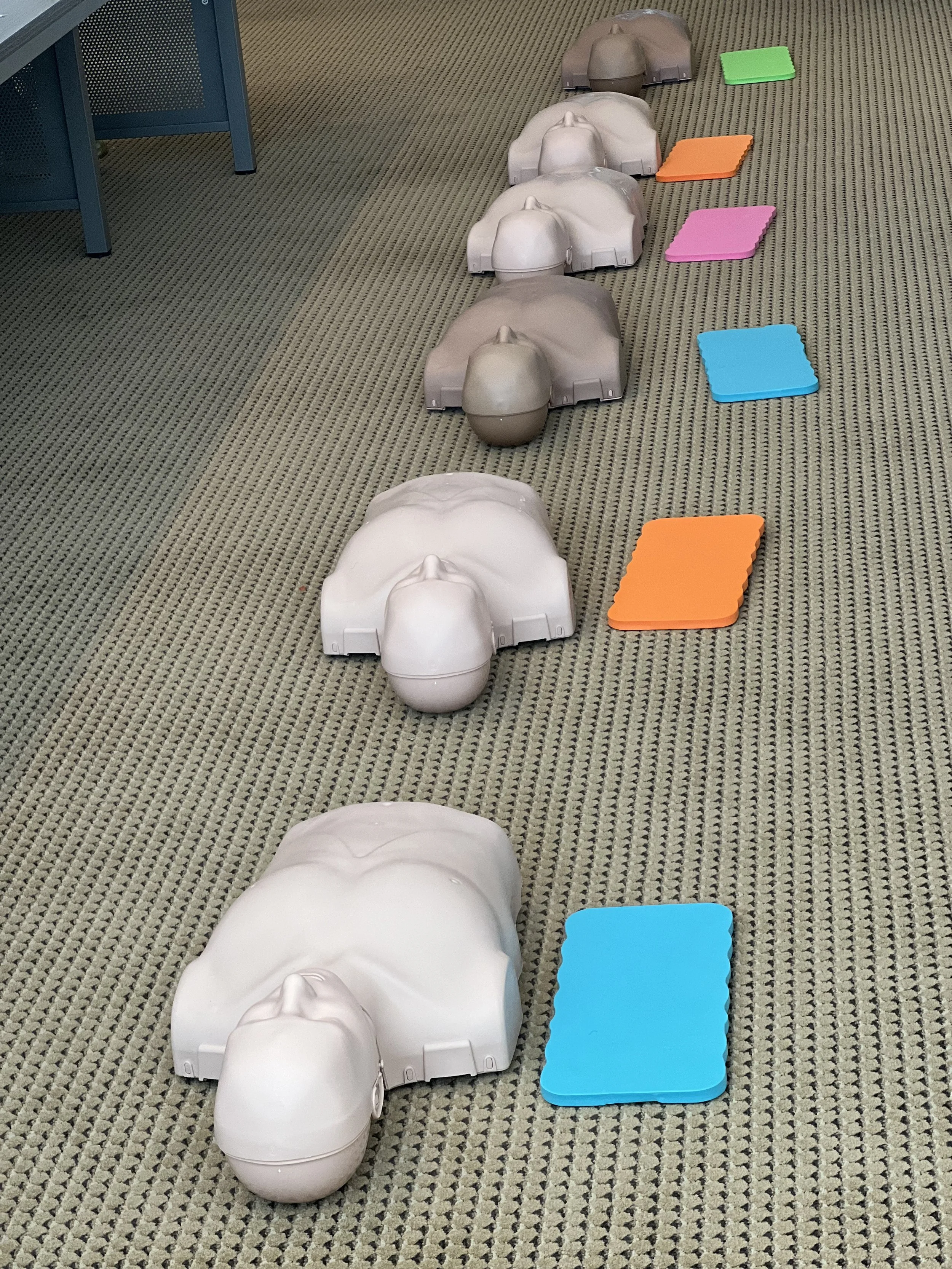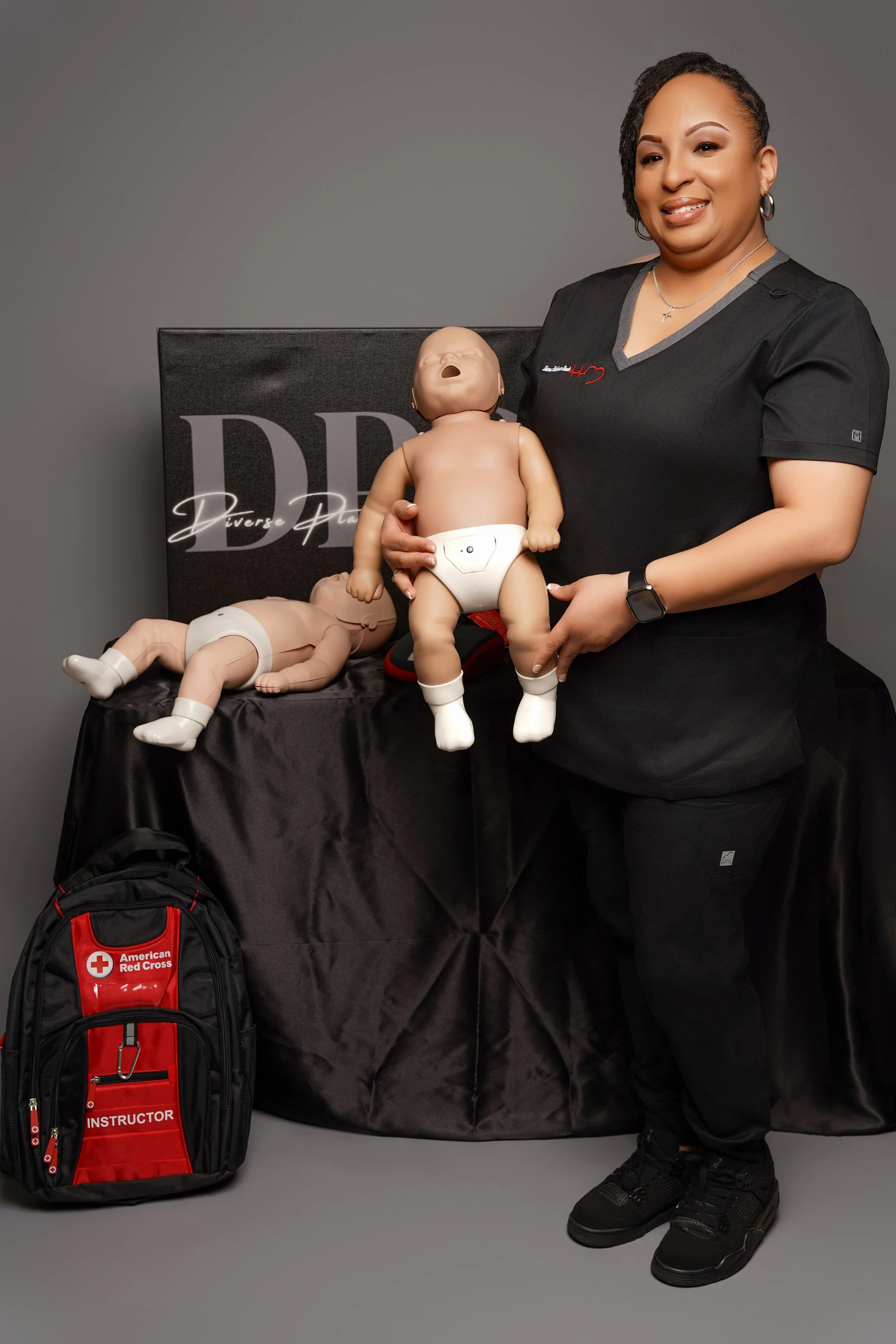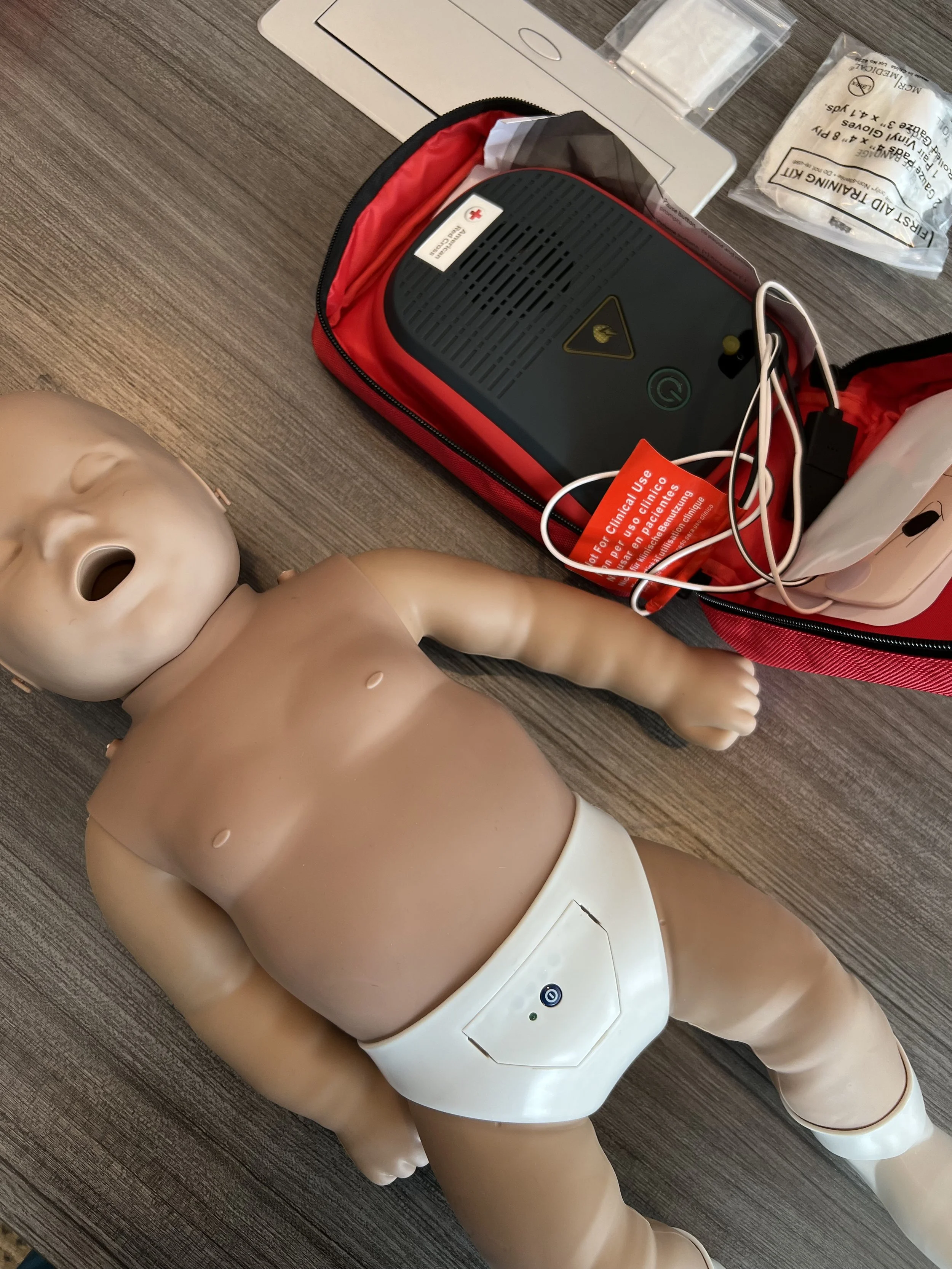-
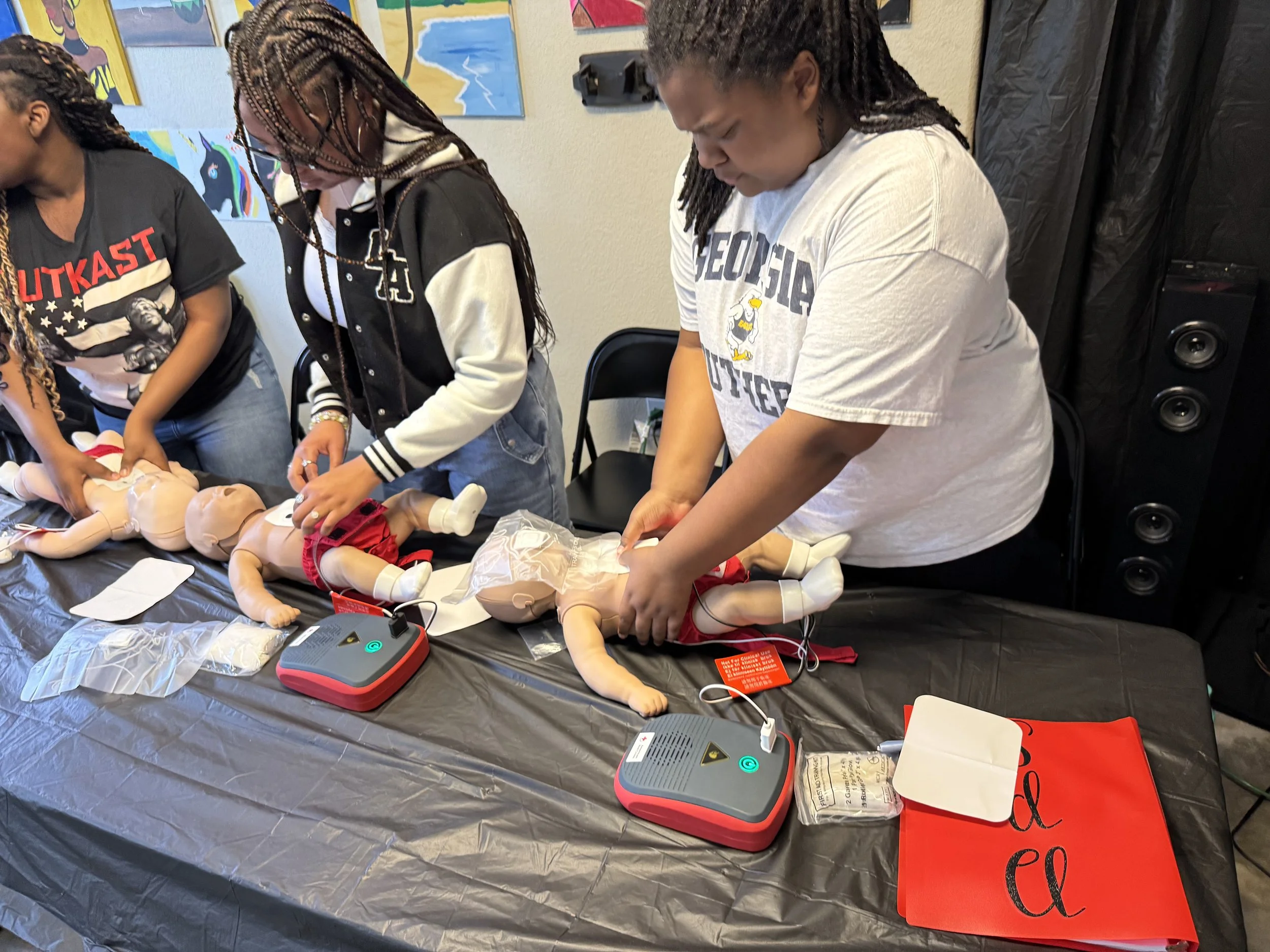
CPR/ AED/ FIRST AID CERTIFICATION (Adult & Infant)
This certification provides essential training in lifesaving skills, including Cardiopulmonary Resuscitation (CPR), basic First Aid, and the proper use of an Automated External Defibrillator (AED). Participants learn how to respond to emergencies such as cardiac arrest, choking, injuries, and other medical situations, gaining the knowledge and confidence needed to act quickly and effectively in critical moments. Ideal for individuals, employees, and caregivers who want to be prepared to help in emergency situations.
-

CPR/ AED/ FIRST AID RECERTIFICATION (Adult & Infant)
Recertification is a refresher course designed for individuals who have previously completed CPR, First Aid, and AED training. It helps ensure that skills and knowledge stay current with the latest guidelines and best practices. Many certifications expire after 1–2 years, so recertification keeps you up to date, maintains compliance for work or legal requirements, and reinforces confidence to respond in real-life emergencies.
-
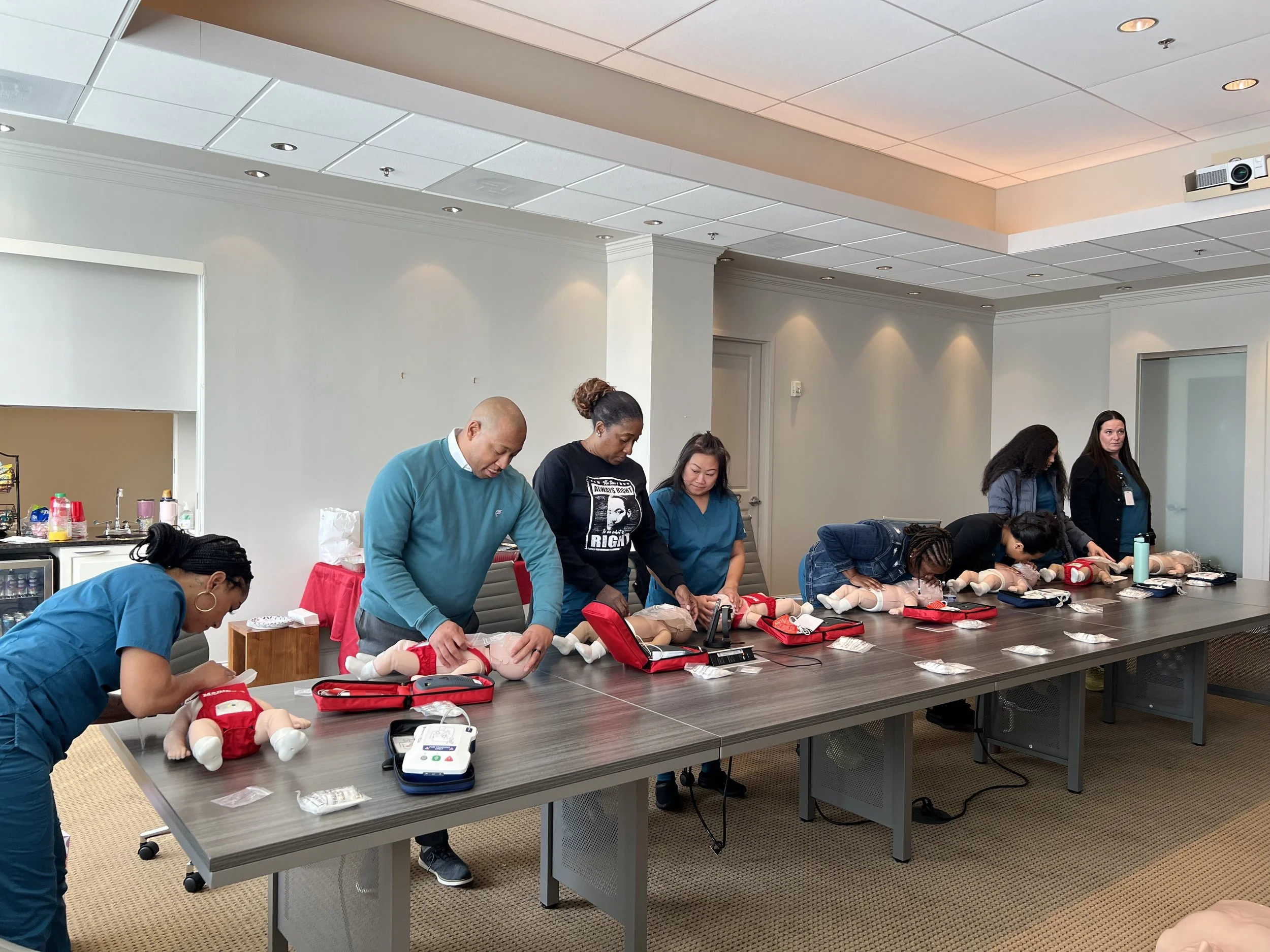
BLS CERTIFICATION (Basic Life Support)
BLS is a more advanced form of CPR training designed for healthcare professionals and first responders. While regular CPR training is great for the general public and teaches how to help in common emergencies, BLS goes deeper—covering team-based response, multiple-rescuer scenarios, and care for adults, children, and infants. It also emphasizes the use of airway management tools and more detailed protocols required in clinical settings. BLS is typically required for nurses, EMTs, and other medical personnel.
-
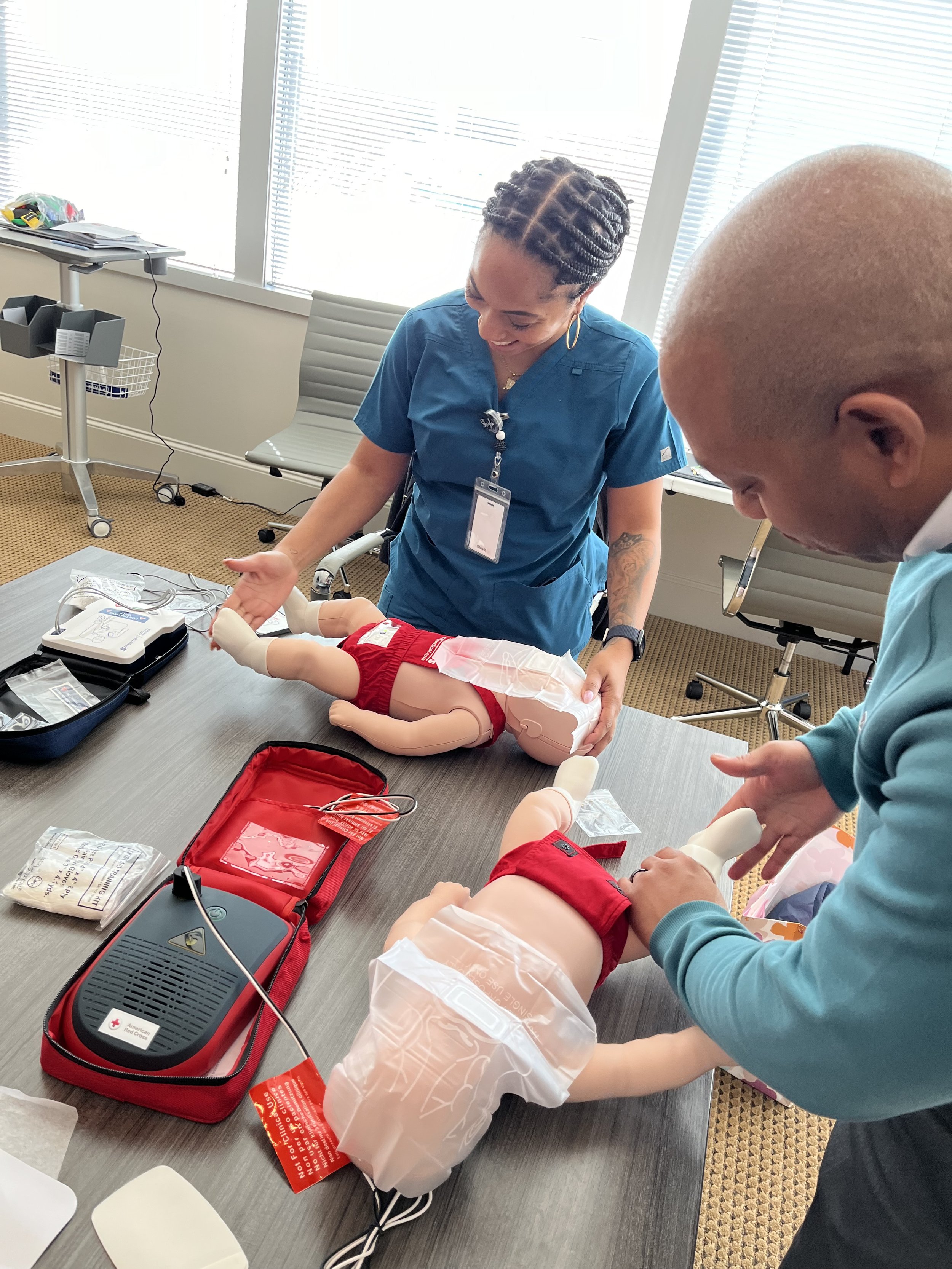
BLS RECERTIFICATION (Basic Life Support)
BLS Recertification is a refresher course for individuals who already hold a valid Basic Life Support certification. It’s designed to update healthcare providers on the latest guidelines, reinforce critical skills like high-quality CPR, AED use, and team-based emergency response, and ensure continued readiness for clinical or emergency situations. Just like with CPR, certification typically expires every 2 years, so recertification is required to stay compliant and confident.
-
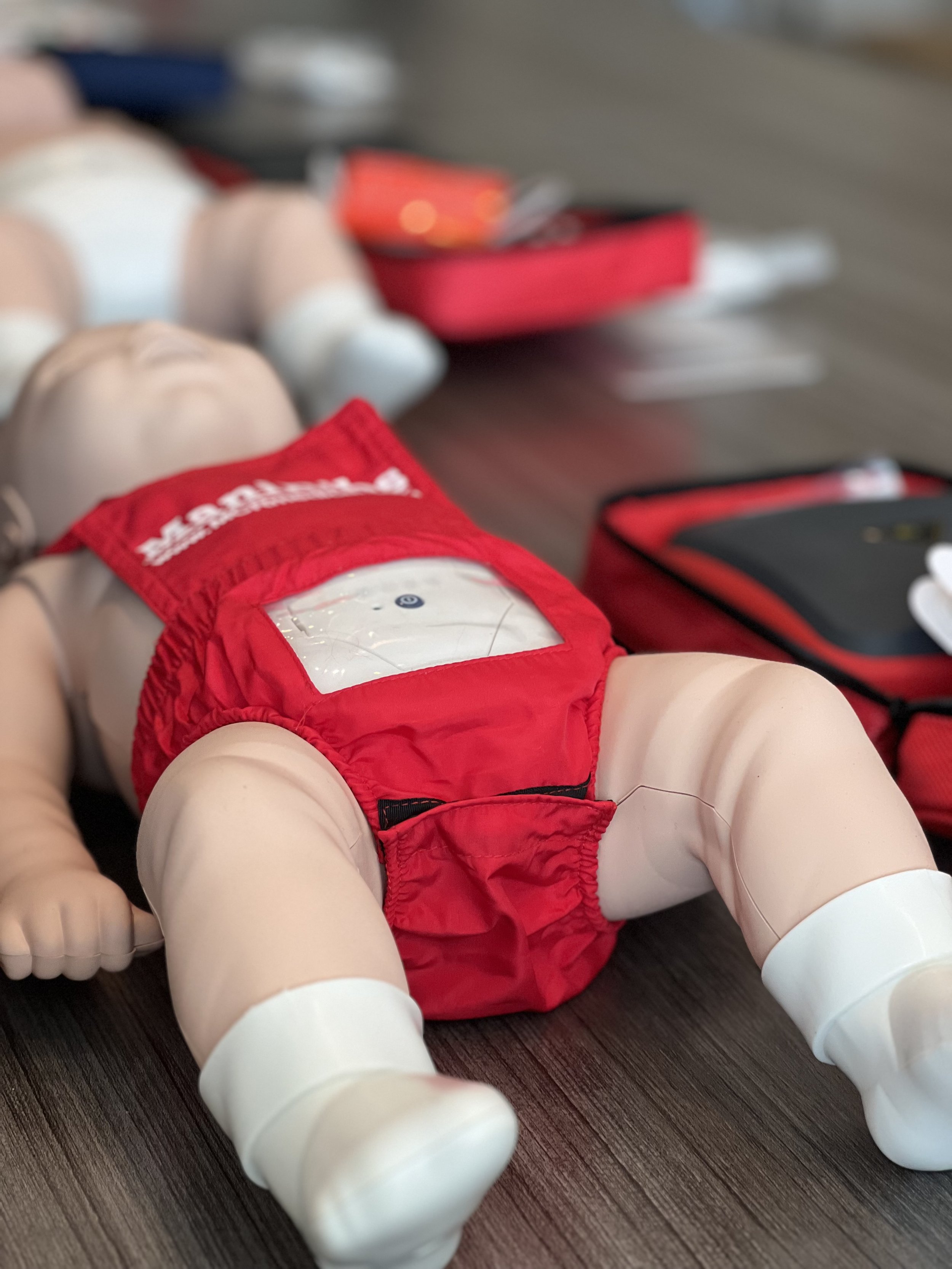
BABYSITTER CERTIFICATION (Ages 11-16)
Babysitter Certification prepares young individuals to care for children safely and responsibly. The course typically covers basic child care, emergency response (including CPR and First Aid), safety, age-appropriate activities, and how to handle common situations like feeding, diapering, and bedtime routines. It also teaches professionalism, communication with parents, and how to handle unexpected issues. This certification is ideal for teens or anyone looking to gain the skills and confidence needed to be a trusted babysitter.
-

BABYSITTER RECERTIFICATION (Ages 11-16)
Babysitter Recertification is a refresher course for individuals who have previously completed a babysitting certification. It reinforces key skills like child safety, basic First Aid, CPR, emergency response, and professional conduct. Recertification ensures that babysitters stay current with best practices, updated safety guidelines, and continue to provide reliable, responsible care for children of all ages.
